How 3 guys turned renting an air mattress in their apartment into a $25 billion company
It started with an email. Joe Gebbia sent his roommate, Brian Chesky, an idea: What if they made a designer's bed and breakfast, complete with a sleeping mat and breakfast? It was a way to "make a few bucks." Almost nine years later that idea is worth $25 billion.

In 2007, the two roommates living in San Francisco couldn't afford to pay rent. The pair decided to turn their loft into an area that could fit three air mattresses. Along with the mattress and a night's sleep came the promise of a breakfast too.
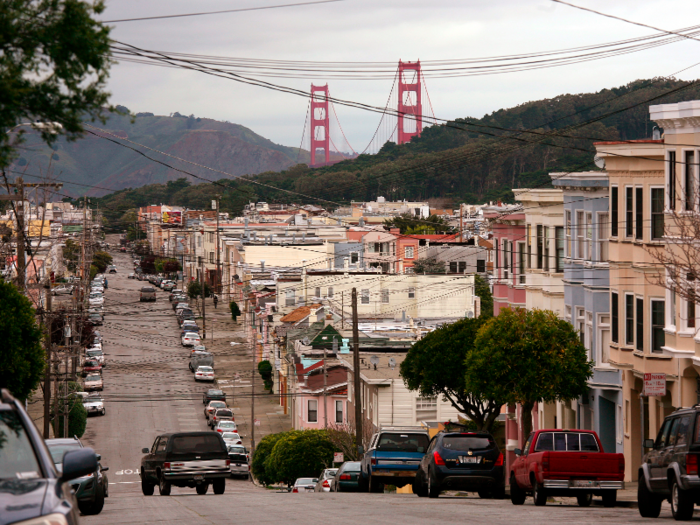
The pair knew a big design conference was coming to San Francisco, and it was making hotels hard to come by. They created a simple site, airbedandbreakfast.com, and bought three air mattresses. The duo had met at college at the Rhode Island School of Design, so they thought acting as tour guides to designers would be a fun way to make money.
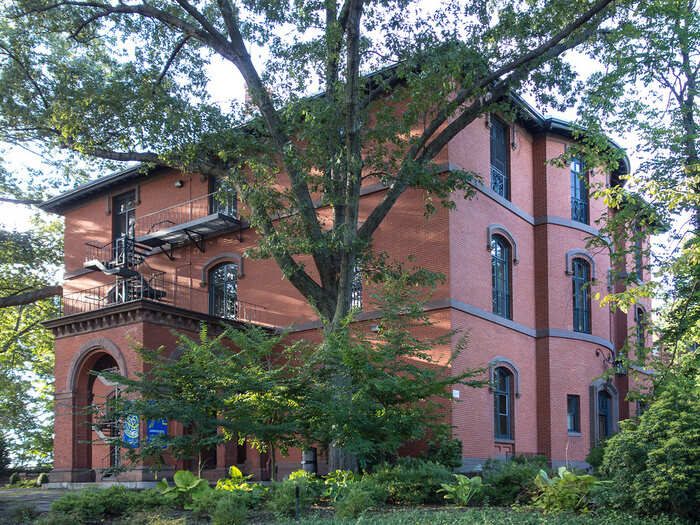
Their first guests, two men and one woman, showed up. Each guest paid $80 to stay on the air mattress. One guest, Amol, was another designer who actually helped Joe and Brian on their presentations. "Being one of the first Airbnb guests feels like being on The Tonight Show, but I didn't know I was on The Tonight Show," Amol said in 2012.

http://www.youtube.com/embed/jpxInV9es6M?rel=0
Width: 640px
Height: 360px
They soon realized it could be a big idea. They got together with their old roommate, Nathan Blecharczyk, to build it into a business. They actually worked on a roommate-matching service for four months until they realized Roommates.com was already a thing. Then they went back to working on Air Bed and Breakfast.
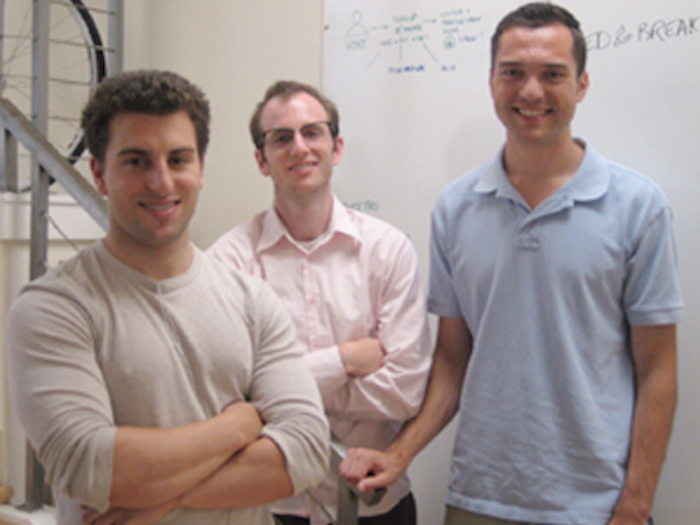
The company launched a second time and no one noticed. The third time was at SXSW in 2008, but they only had two customers, and Chesky was one of them.

By summer 2008, the founders had finished a final version of Air Bed and Breakfast and went to meet investors. The whole experience had been redesigned around taking only three clicks to book a stay; otherwise it was too hard. Investors weren't convinced. Introductions to 15 angel investors left them with eight rejections, and seven people ignoring them entirely.

Broke and in debt, they decided to launch Air Bed & Breakfast (again) at the 2008 Democratic National Convention in Denver. As they had learned from their first time hosting, a hotel room shortage meant people would be looking for other options.
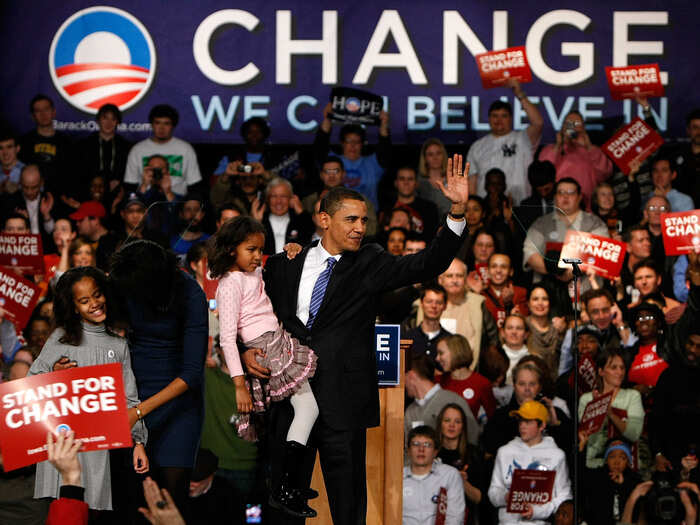
Since the site wasn't making money, the guys transformed cereal boxes into Obama O's and Cap'n McCains and sold them on the streets for $40 bucks a pop. Each one came with a limited-edition number and information about the company. Their bootstrapped marketing strategy netted them $30,000 to put toward the company.
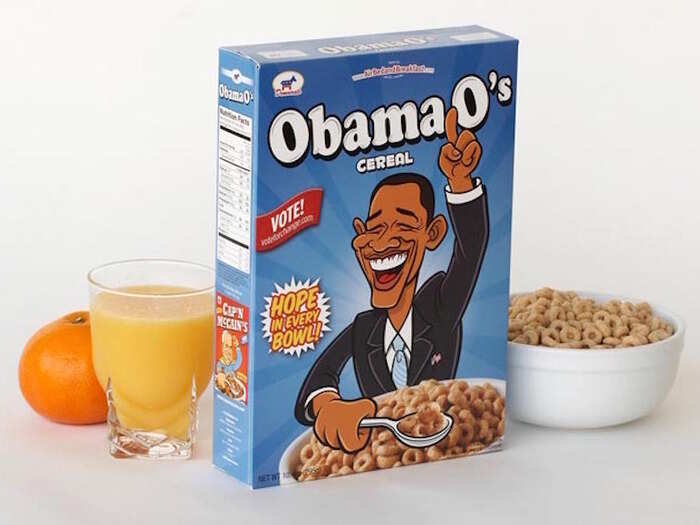
The one VC who did take notice was Paul Graham. Graham invited the guys to join Y Combinator, a prestigious startup accelerator that doles out cash and training in exchange for a small slice of the company. The company spent the first three months of 2009 at the accelerator, working on perfecting their product.

Even during Y Combinator, they still got rejected famously by investors. Fred Wilson of Union Square Ventures admitted in 2011 that he had failed to look past the Air Bed and Breakfast name and see the business.

"We couldn't wrap our heads around air mattresses on the living room floors as the next hotel room and did not chase the deal. Others saw the amazing team that we saw, funded them, and the rest is history," Wilson wrote.
The company continued its scrappy business-building techniques. Channeling their design backgrounds, the founders launched an ambitious project to get its hosts to love the company. They visited all of their hosts in New York to personally stay with them, write reviews, and professionally photograph their places.
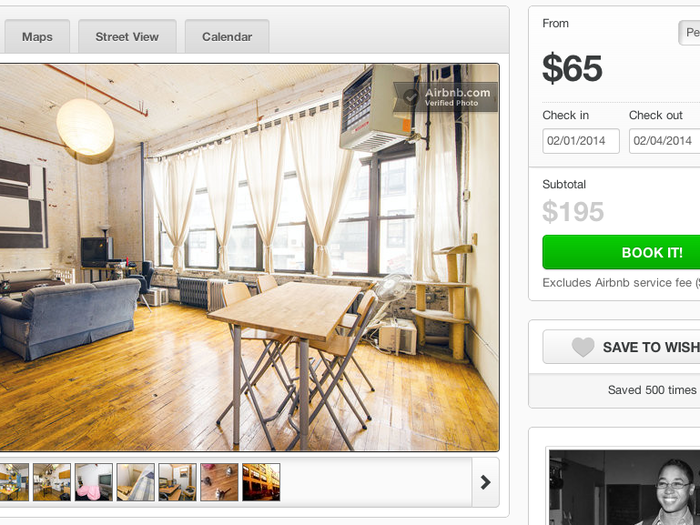
In March 2009, the company finally scrapped the Air Bed & Breakfast name and simplified it to "Airbnb." No more confusing associations with air mattresses.
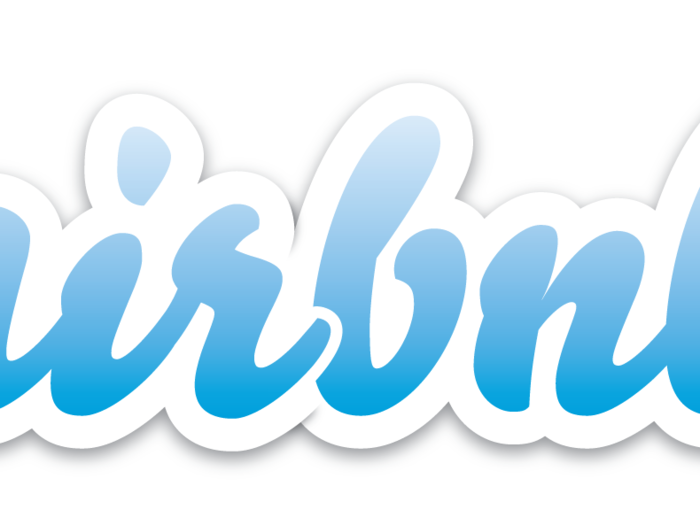
A month later, Airbnb finally picked up a $600,000 seed investment from Sequoia Capital in April 2009. Chesky describes it as going from only eating leftover cereal to "ramen-profitable."

That's when the company hit the accelerator on growth and learned a bunch about their business. Chesky famously lived exclusively in Airbnbs for a few months in 2010 when their employees crowded out the bedroom space left in their apartment.
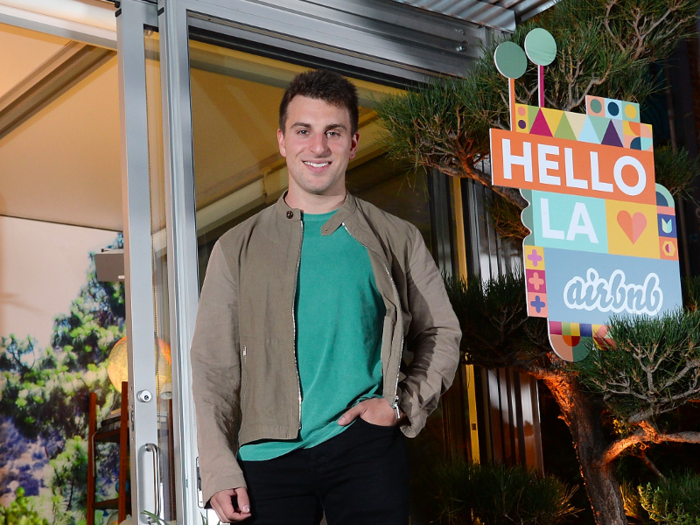
By 2011, four years after the first air mattress guests, Airbnb was already in 89 countries and had hit 1 million nights booked on the platform. It also finally won the break-out mobile app award at SXSW — despite having tried to launch there three years earlier.
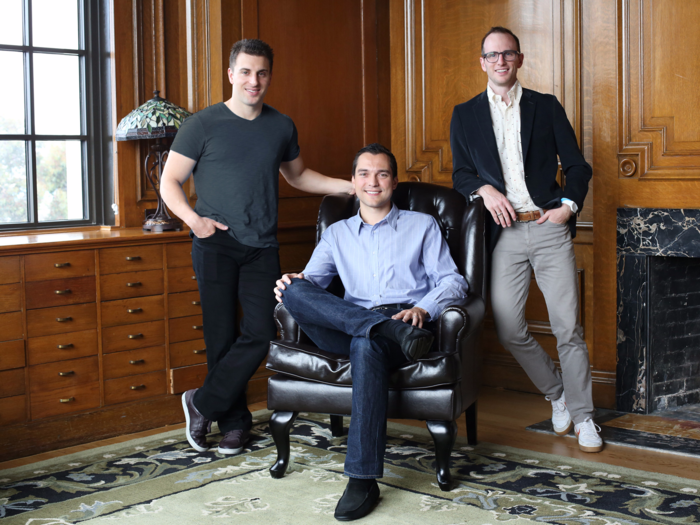
That same year, some of the valley's biggest VCs put $112 million into the startup, valuing it at over $1 billion. That makes Airbnb a "unicorn" in Silicon Valley.
Soon after, the fast-growing startup hit a snag. One host had their place completely trashed. Other hosts started complaining about guests throwing ragers or leaving their place in disgusting shape the following morning. The company started implementing a coverage policy, upping it to a $1 million "Host Guarantee" by summer 2012.
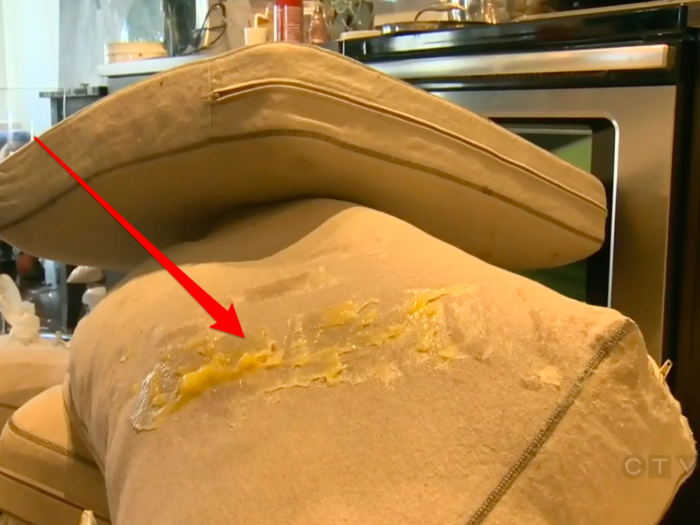
The company also had a growing problem of people getting fined or evicted from renting their place out on Airbnb. Cities soon had a growing problem with Airbnb rentals, and the company's regulation headaches began.
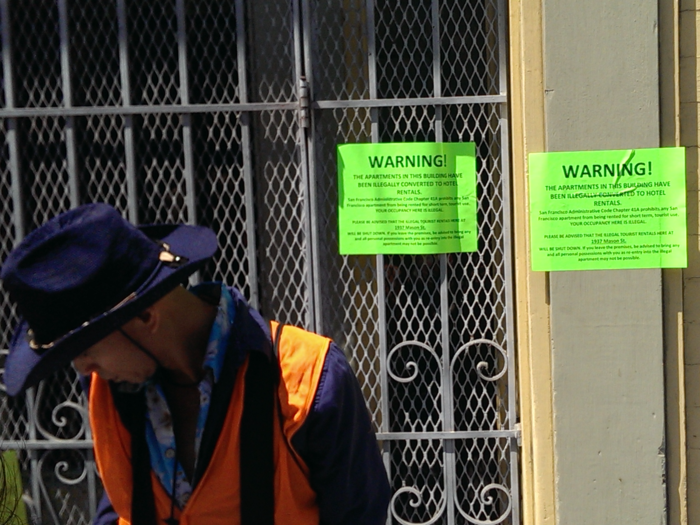
With legal battles (and unruly guests) plaguing the home-sharing platform, Airbnb decided to do a redesign in 2014. The new logo, called the Bélo, is immediately criticized for looking more like genitalia than a symbol of belonging.
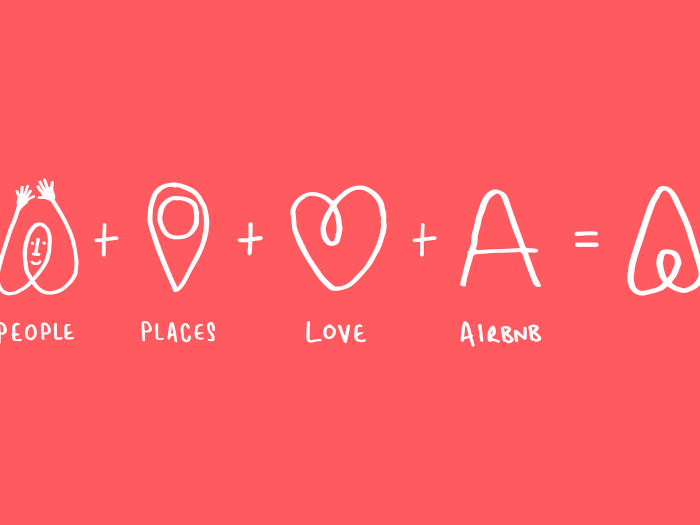
Despite its focus on belonging, cities started to reject Airbnb rentals. New York threatened to ban Airbnb and short-term rentals in 2014 and fine every host. Many city laws made it illegal to rent out your unit without being present for less than 30 days.
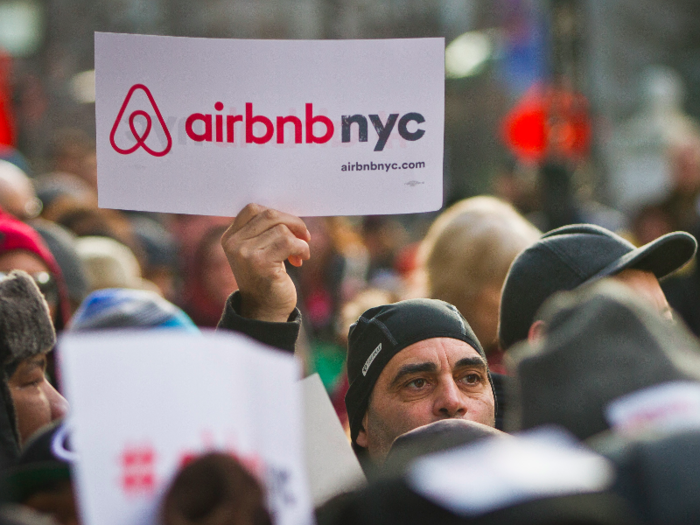
Even Airbnb's hometown in San Francisco wasn't happy. The company spent more than $8 million in the fall of 2015 to combat a citizen-led ballot initiative meant to limit the Airbnb rentals.
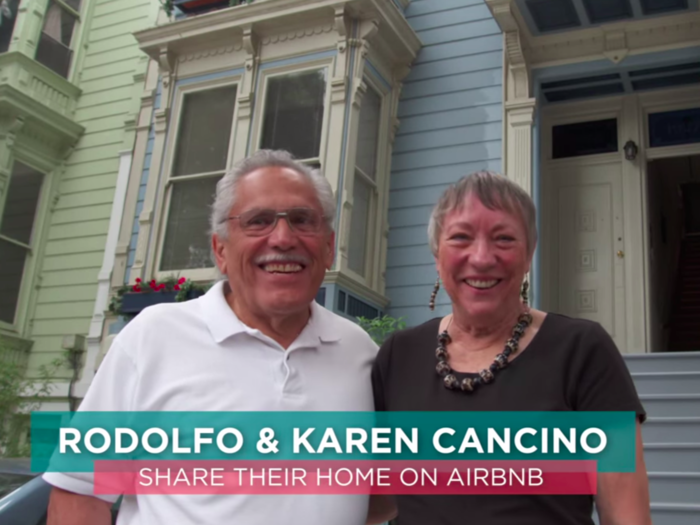
There has been some progress, though, of cities legalizing Airbnb entirely. To the company, even having the discussion with cities is meaningful, because it means they're willing to examine old laws in the face of change.
In spite of the regulatory headaches, the company tried to act on its "Belong anywhere" promise. It started collecting hotel taxes and remitting them to some cities. It's also pledged to give cities some of its data as part of a "community compact."
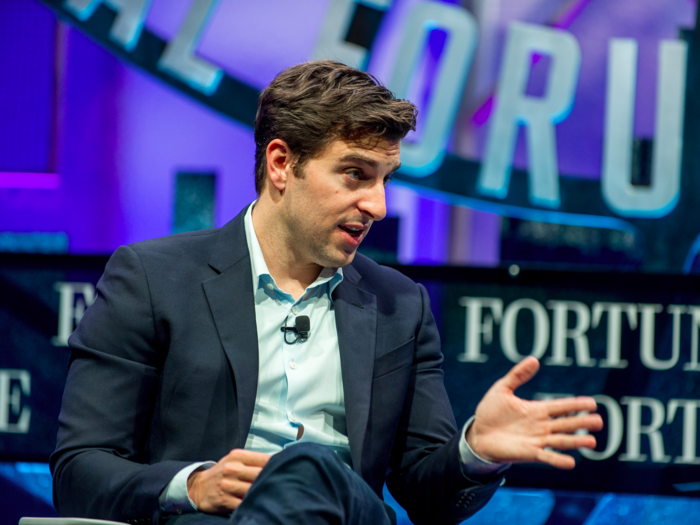
The occasional rager and legislative wars have not slowed the company from becoming a force, both within Silicon Valley and as a steadily gaining competitor of the hotel industry.
A new report from Goldman Sachs shows that Airbnb users who try the service once are less likely to prefer hotels for their next vacation. And instead of lacking investor report, the company that once subsisted on leftover cereal boxes and was turned down plenty of times closed a $1.5 billion round of funding in 2015. The company that started with three air mattresses and broke roommates is now worth more than $25 billion.
Popular Right Now
Popular Keywords
- India’s wearables market decline
- Vivo V40 Pro vs OnePlus 12R
- Nothing Phone (2a) Plus vs OnePlus Nord 4
- Upcoming smartphones launching in August
- Nothing Phone (2a) review
- Current Location in Google
- Hide Whatsapp Messages
- Phone is hacked or not
- Whatsapp Deleted Messages
- Download photos from Whatsapp
- Instagram Messages
- How to lock facebook profile
- Android 14
- Unfollowed on Instagram
Advertisement